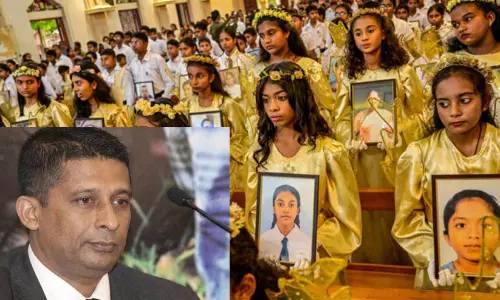
Muslim civil society group opposes reinstating ban on Rushdie’s novel
text_fieldsIndian Muslims for Secular Democracy (IMSD), a civil society organisation, has opposed demands by some Muslim groups to reinstate the ban on Salman Rushdie’s controversial novel The Satanic Verses.
The group urged the community to respond to ideas perceived as offensive with intellectual critique rather than suppression, advocating for reasoned engagement over censorship.
In a statement issued on Monday, IMSD drew parallels to the 19th-century reformer Syed Ahmad Khan’s approach to works critical of Islam. Khan, known for his reformist ideals, had resisted calls for banning such works. In 1861, he studied the sources of a book by British author William Muir, which contained disparaging views on Prophet Muhammad.
Eight years later, Khan published a detailed rebuttal, showcasing intellectual defence rather than demands for suppression. IMSD suggested that Khan’s philosophy remains relevant in contemporary India, where Muslims often face hate campaigns and communal targeting.
The organisation warned that demands for bans or fatwas against works like The Satanic Verses risk playing into the hands of those seeking to vilify the Muslim community. Such actions, they noted, could inadvertently amplify the visibility of the criticised material while portraying Muslims as intolerant or incapable of intellectual engagement. IMSD recommended a measured response, emphasising the importance of peaceful protests and lawful mechanisms to address grievances.
The group also addressed the distinction between permissible expression and hate speech. While supporting legal action against hate speech, IMSD argued against using violent or repressive measures to silence dissenting views. They asserted that faith should be defended through intellectual and moral reasoning, suggesting that inflammatory or baseless attacks on religion are best ignored if not worthy of critique.
The debate over The Satanic Verses has long been contentious, highlighting the tension between freedom of expression and religious sensitivities. Published in 1988, the book was banned in India shortly after its release, citing concerns over communal unrest. The controversy escalated globally, with Iran’s Ayatollah Khomeini issuing a fatwa calling for Rushdie’s assassination in 1989.
The issue resurfaced earlier this year when the Delhi High Court allowed the import of The Satanic Verses, citing the lack of official documentation supporting the decades-old ban. IMSD’s statement aligns with this legal development, reflecting a broader call for dialogue over censorship.
The statement was endorsed by 42 prominent individuals, including activists, academics, and artists, who highlighted the need for reasoned responses in the face of provocation. IMSD’s stance underscores a commitment to democratic principles and intellectual discourse in addressing complex societal issues.























